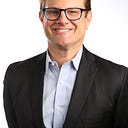The Programmer’s Journey with Andy Hunt
A Wealth-Actually Podcast
All of us have become more reliant on technology and software to solve problems and improve our lives. However, many of us understand less and less about the programming that goes into these solutions. Further, we forget or ignore the human element of this problem solving.
In this episode, I speak with Andy Hunt, who has devoted his life to these issues:
Andy Hunt is a programmer turned consultant, author, and publisher. He has authored a dozen books including the best-selling The Pragmatic Programmer:
Andy was one of the seventeen authors of the Agile Manifesto and founders of the Agile Alliance. Andy co-founded The Pragmatic Bookshelf, which publishes award-winning and critically acclaimed books for software developers. He’s currently writing science fiction and experimenting with The GROWS Method®.
We talk about his early days of programming and the power of community and process in the world of software design and his experience with broader consulting at the enterprise level.
Further on, Andy dives into what he considers to be important in the future of programming and advice for young programmers.
Finally, as a consummate Renaissance man, Andy discusses how his hobbies in writing science fiction, music production, and woodworking excite his brain and inform his problem solving ability.
Andy started in the do-it-yourself days of CP/M and the S100 bus, of Heathkits and Radio Electronics. Andy wrote his first real program, a combination text editor and database manager, for an Ohio Scientific Challenger 4P. It was a great era for tinkering. Andy started hacking in 6502 Assembly language, modifying operating systems, and wrote his first commercial program (a manufacturing resources planning system) in 1981. He taught himself Unix and C and began to design and architect larger, more connected systems.
Working at large companies, Andy kept an ear on Usenet, and started his early email habit via a direct bang-path to ihnp4. Next he settled into electronic pre-press and computer graphics, and worked on that wondrous eye-candy that was Silicon Graphics machines. By now, a firm command of several flavors of Unix — from BSD to System V — led Andy to try consulting in the early 1990s.
His knack for stirring things up really began to come in handy, and it soon became obvious that many of his clients each suffered similar problems — problems that Andy had already seen and fixed before.
Andy joined up with Dave Thomas, and they wrote the seminal software development book, The Pragmatic Programmer. That book was followed a year later by the original Programming Ruby: The Pragmatic Programmer’s Guide, which introduced the Western world to this new language from Japan. Together they founded The Pragmatic Programmers and are well known as founders of the Agile movement and authors of the Agile Manifesto, as well as proponents of Ruby and more flexible programming paradigms. They founded the Pragmatic Bookshelf publishing business in 2003, helping keep developers at the top of their games.
Andy is a founder of The Pragmatic Programmers, founder of the Agile Alliance, and one of the seventeen authors of the Agile Manifesto. Andy has written a dozen or so books on programming, Agile methods and learning, as well as science fiction and adventure. He is an active musician and woodworker, and continues looking for new areas where he can stir things up.
The Questions
Following are some of the questions Andy answered for us.
Early Career
About his early career we asked:
- Where did your initial interest in programming develop? (The do-it-yourself days)
- What were the types of problems that attracted your attention?
- What languages did you gravitate toward?
Working in Larger, More Complex Situations
Andy shared the answers to questions about working on larger projects:
- What were the big lessons you pick up in those work environments?
- Programming is considered by laymen as a solitary pursuit — was there an adjustment in delegating work or collaborating? When does management of strategy get in the way of execution?
- The role of community in the world of programming and larger system development.
- Where does the role of compromise and creativity manifest in the problem-solving process?
- How did this inform your contribution to the Agile Manifesto?
The Pragmatic Programmer
In regard to The Pragmatic Programmer and publishing, Andy answered these questions:
- How did you meet Dave Thomas?
- How did that turn into the book? What was that writing process like?
- Describe the leap from programmer to author to publisher at The Pragmatic Bookshelf.
- In building a publishing company “by programmers, for programmers,” how do you identify the next generation of authors?
Agile Manifesto
As one of the authors of the manifesto, Andy shared:
- How did this come about? https://agilemanifesto.org/history.html
- General principles: https://agilemanifesto.org/principles.html
– Individuals and interactions over processes and tools
– Working software over comprehensive documentation
– Customer collaboration over contract negotiation
– Responding to change over following a plan
– Resolving frictions; not letting perfect get in the way of the good
The Future of Programming
Regarding the future of programming, Andy answered these questions:
- What are the themes that are interesting to you right now?
- As you think about the landscape of languages out there:
– Advice to younger programmers
– What languages form a good early curriculum?
– Broad exposure versus specialization?
– What is the best way to stay current, state of the art? - Hiring and work from home. Is is something lost in not having an in-person culture?
Andy the Renaissance Man
Andy told us about his:
- Music
- Fiction
- Woodworking
Stay in Touch
Andy’s links:

